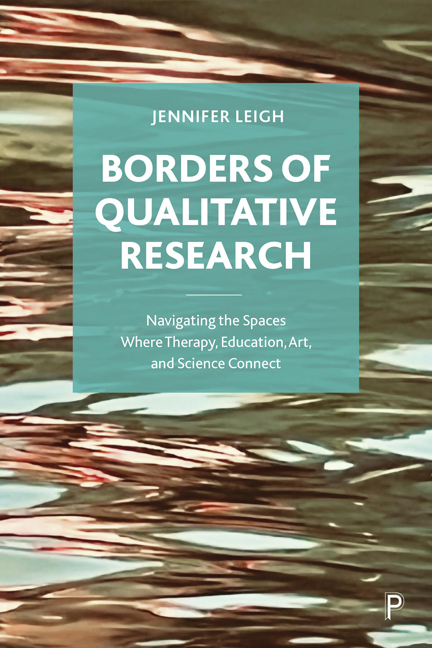 Borders of Qualitative Research
Borders of Qualitative Research Lessons from science
Published online by Cambridge University Press: 28 March 2024
Summary
According to the internet (so it must be true): ‘the scientific method is the process of objectively establishing facts through testing and experimentation. The basic process involves making an observation, forming a hypothesis, making a prediction, conducting an experiment and finally analyzing the results’ (Science Buddies n.d.). The scientific method is familiar to most of us, as it is the way children are taught to ‘do’ science throughout a school education. What is notable in the scientific method and the way that it is most commonly taught in schools is the absence of reflection, self-awareness, or the importance and impact of the relationship between the scientist and the world around them. Science is acknowledged as being ‘hard’, possibly because it is abstract (Millar 1991). As a result, science is seen as something worthy, and success in science something to celebrate (Frank 2012). This may be one reason why some social scientists aspire to be taken seriously as ‘scientists’ and hold fast to a scientific ideal (Flyvbjerg 2006).
One of the key tenets of the scientific method is scientific objectivity:
The idea that scientific claims, methods, results—and scientists themselves—are not, or should not be, influenced by particular perspectives, value judgments, community bias or personal interests, to name a few relevant factors. Objectivity is often considered to be an ideal for scientific inquiry, a good reason for valuing scientific knowledge, and the basis of the authority of science in society. (Sprenger and Sprenger 2020)
Julian and Jan Sprenger continued:
Objectivity is a value. To call a thing objective implies that it has a certain importance to us and that we approve of it. Objectivity comes in degrees. Claims, methods, results, and scientists can be more or less objective, and, other things being equal, the more objective, the better. Using the term ‘objective’ to describe something often carries a special rhetorical force with it. The admiration of science among the general public and the authority science enjoys in public life stems to a large extent from the view that science is objective or at least more objective than other modes of inquiry.
- Type
- Chapter
- Information
- Borders of Qualitative ResearchNavigating the Spaces Where Therapy, Education, Art, and Science Connect, pp. 109 - 118Publisher: Bristol University PressPrint publication year: 2023


